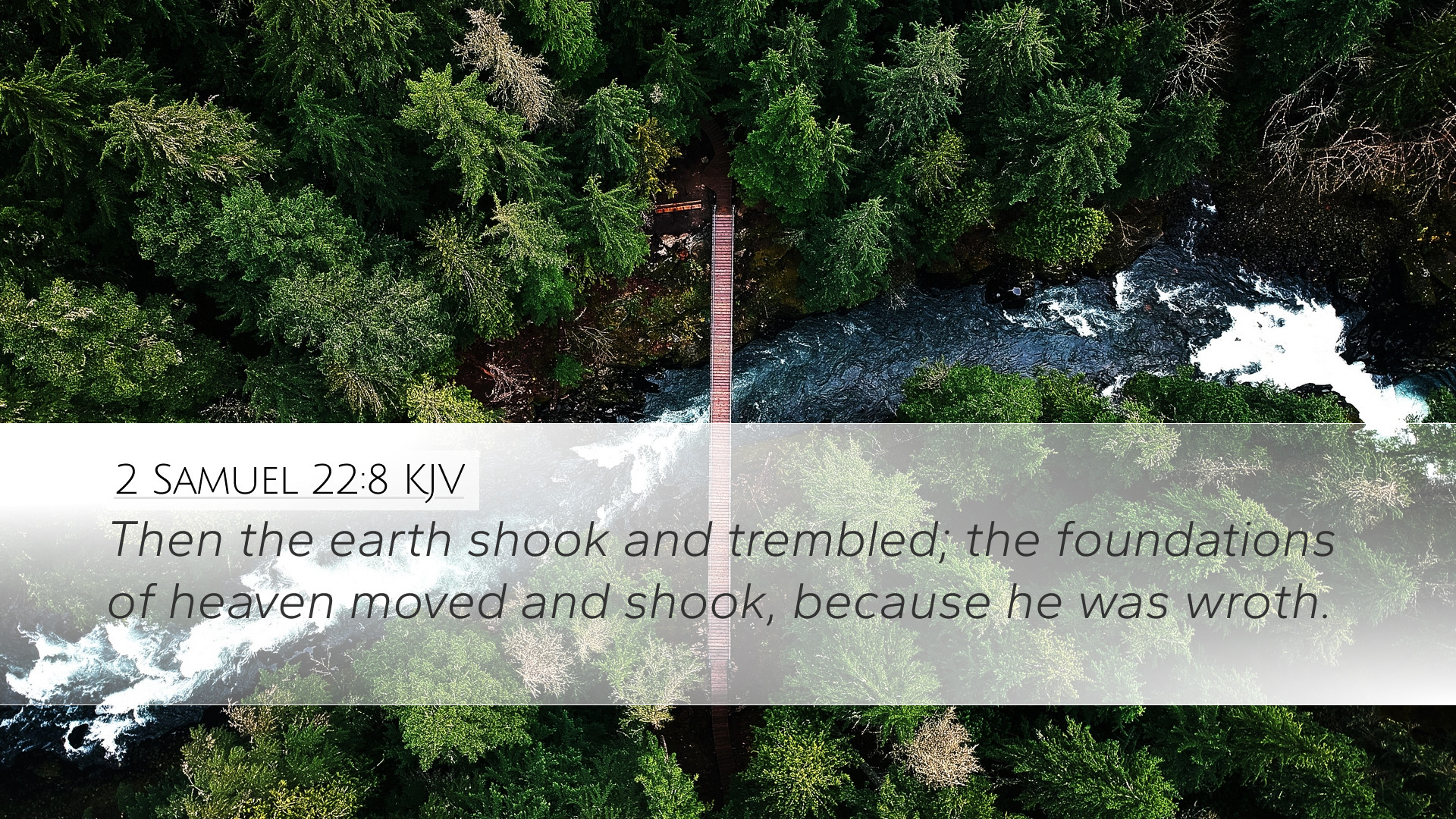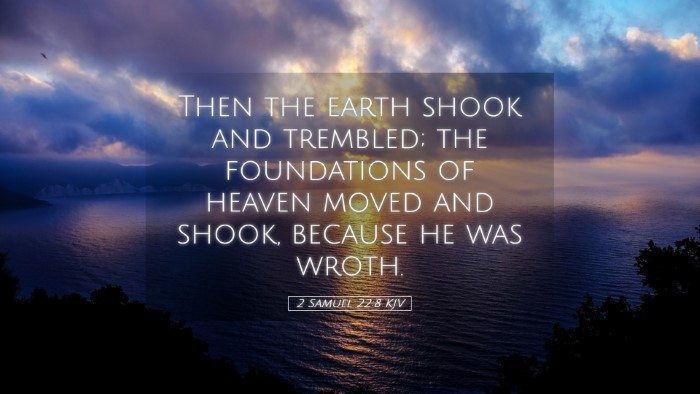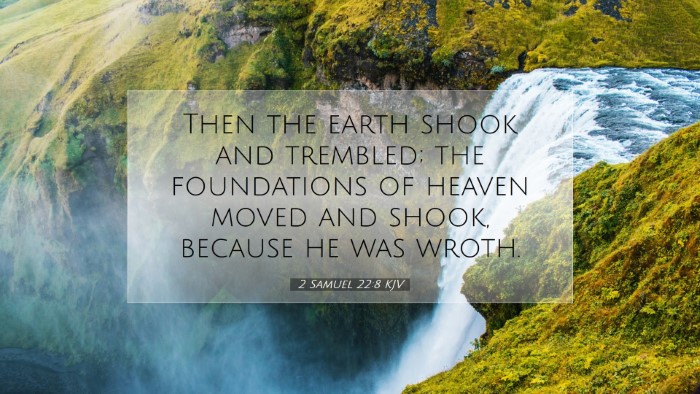Commentary on 2 Samuel 22:8
2 Samuel 22:8 states:
“Then the earth shook and trembled; the foundations of heaven moved and shook, because he was wroth.”
Summary and Exegesis
This verse is part of a song of praise and thanksgiving that David declares after the Lord delivers him from his enemies. It is essential to contextualize this verse within the larger narrative of 2 Samuel, specifically chapters 21-22, where David reflects on God's faithfulness and might.
Theological Implications
David’s description of cosmic upheaval highlights God’s power and the seriousness of His response to sin and injustice. The phrase "earth shook and trembled" signifies divine intervention and suggests a physical manifestation of God's wrath—an image that resonates with various biblical accounts where natural disturbances are employed as a testament to God’s might (see Exodus 19:18; Isaiah 6:3).
-
Cosmic Power:
The trembling of the earth symbolizes God's sovereignty over creation. According to Matthew Henry, “God, in His anger against sin, may shake the very foundations as a testament to His righteous indignation.”
-
Anger of the Lord:
The mention of the Lord's wrath is significant. Albert Barnes elucidates that this "wrath" signifies God's response to the oppression of His people, reminding us that divine justice prevails.
-
Divine Deliverance:
This verse helps reinforce the theme of deliverance in David's life. The shaking of foundations can be seen as a metaphor for God removing obstacles for those who rely on Him, as highlighted in Adam Clarke's commentary where he emphasizes the dramatic nature of divine intervention.
Literary Analysis
The language used in 2 Samuel 22:8 employs strong imagery and personification. The earth shaking serves to illustrate the profound impact of God's will on the natural world.
Use of Metaphor
This metaphor can be seen as an echo of the theophany, which exemplifies God's presence and holiness. Henry points out that such manifestations in nature demonstrate that God is not only a protector but also a righteous judge who delights in administering justice.
Contextual Considerations
To fully appreciate the depth of 2 Samuel 22:8, it’s vital to consider its placement within the broader textual narrative. This chapter serves as a climax to David’s life, marking a moment of reflection where he acknowledges God’s faithfulness amidst his trials.
The Song of Deliverance
This passage, being part of a song, lets the reader understand not only the historical context but also the emotive and celebratory elements inherent in worship. Barnes notes that songs of deliverance have a crucial role in helping communities remember their history and God's involvement in it.
Application for Today’s Reader
In light of this commentary, modern readers, including pastors, students, and theologians, can draw several important lessons from 2 Samuel 22:8:
-
God’s Sovereignty:
This verse reminds us of God’s ultimate control over all things and assures believers that He responds against evil with justice.
-
The Importance of Worship:
As David sang in response to deliverance, believers are encouraged to cultivate a spirit of worship, acknowledging God's past interventions and current presence.
-
Hope in Trials:
The imagery of God’s wrath can be daunting, yet it serves as a reminder that for those who trust in Him, there is hope and assurance that He fights for His people.
Conclusion
2 Samuel 22:8 serves as a powerful reminder of God's might in the face of adversities and the importance of recognizing His role in our lives. Through the lens provided by public domain commentaries, we understand that this verse encapsulates a critical moment where God’s anger results in cosmic phenomena, signaling His righteousness, and delivering His people from oppression.


